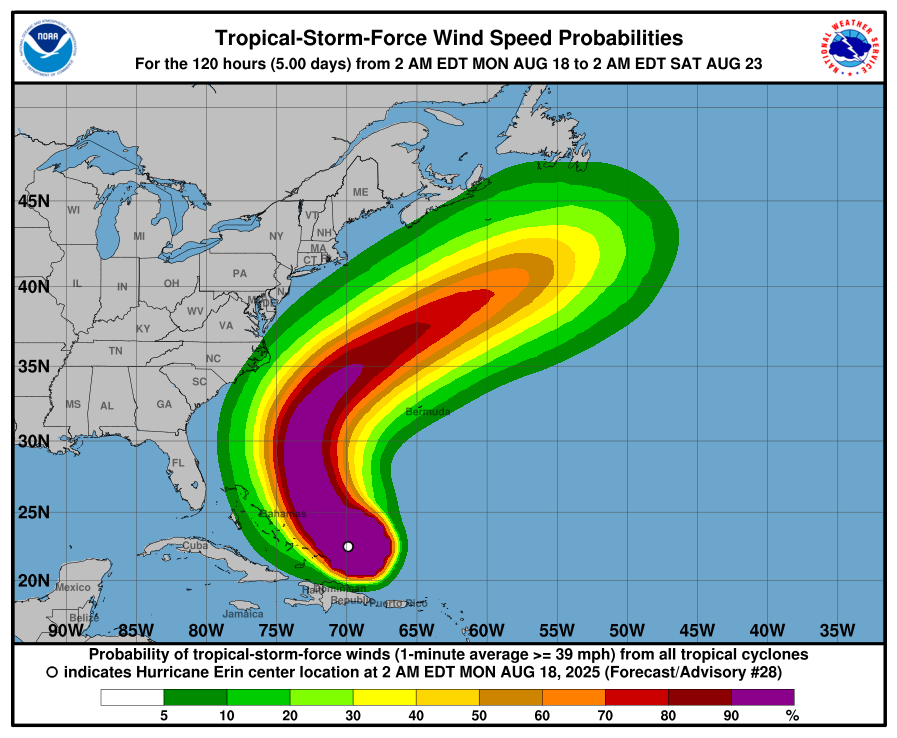
Hurricane Erin, a rapidly intensifying major hurricane, is about to pose major risks for North Carolina’s Outer Banks.
Dare County officials have now declared a state of emergency. Emergency officials ordered the evacuation of Hatteras Island today. The National Weather Service warned that heavy surf, high winds, and waves could wash out portions of North Carolina Highway 12, the only roadway connecting the island to the mainland.
According to the National Hurricane Center, Erin is expected to pass at least 200 miles offshore Wednesday night and Thursday before turning northeast.
Hurricane Erin is forecast to bring life-threatening impacts to Dare County.
A State of Emergency has been declared for Dare County. A Mandatory Evacuation has been issued for Hatteras Island. Learn more: https://t.co/1BSsk8RRsA
Now is the time to finalize plans. pic.twitter.com/2HoCbvIBmz
— Dare County (@DareCountyGovt) August 17, 2025
Even outside of Dare County, Hurricane Erin will likely bring catastrophic rip currents, erosion, and flooding all along our coastal towns this week.
Haz Weather 8.17.25
Risks of rip currents, beach erosion, coastal flooding, and severe surf along the NC Coast next week.
Path changes may bring heavy rain and strong winds to the NC Coast midweek.
Full report on https://t.co/TMjp1yqdFr pic.twitter.com/RRJbQrRlO4— NC Emergency Management (@NCEmergency) August 17, 2025
The 2025 Atlantic hurricane season is already predicted to be busier than average. The National Oceanic and Atmospheric Administration forecasts 13 to 18 named storms, with as many as five major hurricanes. Typically, the season produces 14 named storms, including seven hurricanes and three major hurricanes.
Experts warn that climate change is fueling stronger and more frequent storms. Hurricane season runs from June 1 through November 30, with the most active period stretching from mid-August to mid-October.
Officials are also recommending that all North Carolina residents prepare for possible power outages from hurricane damage. The following emergency items are suggested for all homes in our our state;
- Car charger for cell phones and other devices
- Clean drinking water (recommended 1 gallon per person per day, minimum three days)
- Flashlights
- Batteries: Extra batteries for all of your devices
- Weather radio/clock
- Non-perishable food
- First aid kit


